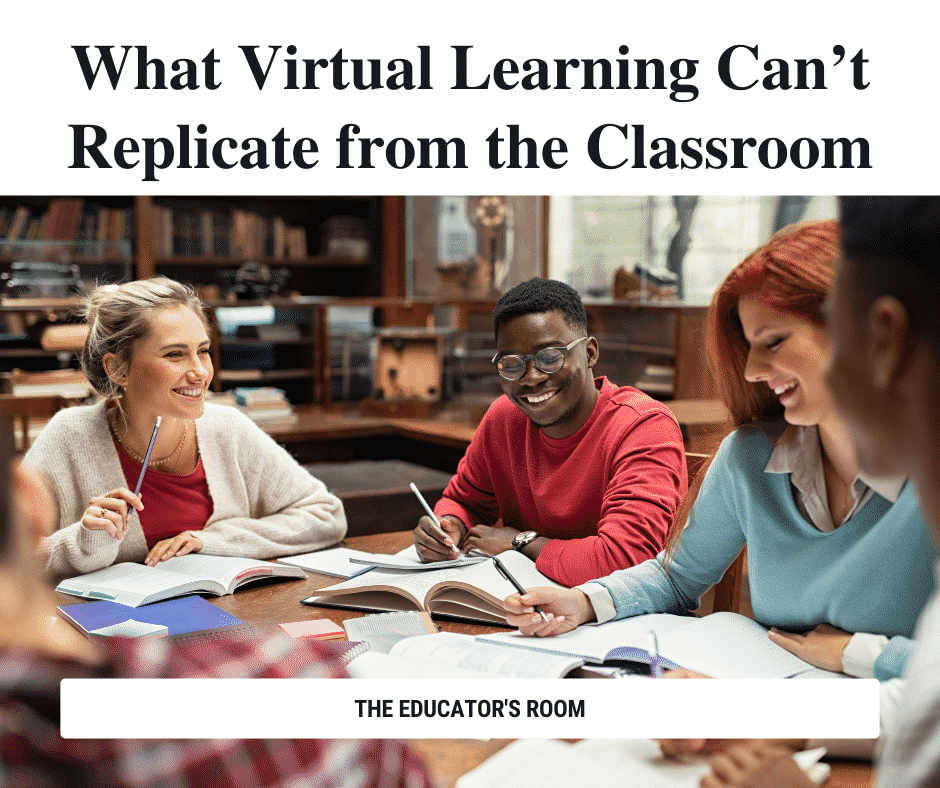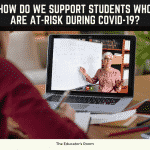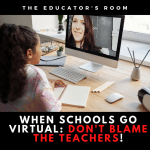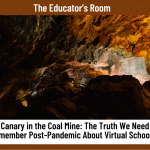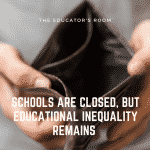
Before Covid-19 struck many of us were in peak stride in our yearly routine. Students came in, the bell rang, we welcomed them, we taught them something, they practiced it, maybe they asked some questions, the bell rang again, and we moved on to the next class. At the high school level, even if you have an exciting lesson plan or class environment, there ended up being a daily pattern that we slid into. However, certain aspects of the education process become overlooked on a daily basis that is very important in the growth of our students, which is ironic because many of us actually enjoy them.
It is no surprise that most teachers will tell you that they miss being in person. Some will say it is because it is easier for them, others because they simply miss the students. But school is about the students, not the teachers, and there are some things that cannot be replicated for them digitally, and these are why in-person, blended, and hybrid learning will always exist as the best educational platforms.
Hands on Techniques & Experiences
As a science teacher, labs are an integral part of my curriculum and are what makes my class unique from other subjects students are learning. Getting students involved in doing something physical with their hands, and minds, leaves an impression. No virtual reality can simulate the fine motor skills required for carefully filling a burette with sodium hydroxide for an acid-base titration or the techniques for getting a quality measurement of the volume used for that titration. Sure students can read, see pictures, and watch videos outlining how it is done, but it is purely academic and they have to take other peoples’ words for it. There is a great deal of emphasis, in the educational professional development world, put on giving students opportunities to try something new, to take risks, and to not be afraid to make mistakes.
Students know that if they make mistakes in a virtual lab it is not a big deal. There is no danger, there is no clean-up, and they might not even have to completely start over. While it seems like it would create confidence in students, it only does so in the virtual world. Virtual labs create virtual confidence. If a student does these things in the real world there may be some danger for them to be brave and overcome. They may make a mess and have to clean it up and might have to start over. Yet, knowing they have a teacher backing them up to support them, and building the confidence to try anyway, is something our students gain that our education system does not account for in standardized testing.
There is also no substitution for the satisfaction students get when they mix potassium iodide and lead (II) nitrate to create that beautiful eye-popping yellow precipitate for the first time. Seeing the reaction in a video just does not leave the same impression. It is humorous how many students KNOW what is going to happen and still can not help but utter the words “THAT is so cool”. As scary and difficult as school can be for some students, we can not take away experiences like this that reinforce that school can also be “cool”.
Relationships & Social Interactions
Teachers actually like their students. They enjoy talking to them about non-school things and getting to know them. While enjoyable for the teachers, this is an important part of student growth. Respect, discretion, and compassion are a few of the nuanced skills modeled by teachers every day in the classroom, being thrust into distance learning showed that this is incredibly challenging through virtual methods. Students do not encounter dialogue between teachers and other students, from the outside, to see how an adult handles various situations.
What virtual learning can’t replicate from the classroom
Spontaneous conversations about interests, hobbies, relationships, jobs, beliefs and opinions do not spring up through computer screens like they do in person.
While we divide most classes up by academic subject matter, and even have advisory classes to discuss non-academic topics, we need to keep in mind that students do not ever take a break from watching others and learning how to become adults. For many students, school is where they find mentors, positive role models, people encouraging them to chase their dreams while also helping them evaluate their strengths and weaknesses. Virtual learning classrooms do not have the same abilities for these types of relationships to exist and bolster our students in nonacademic ways.
With a little luck, we will be back to a more normal school year next year. Technology, for better and worse, has changed the way education looks in so many ways over the last two years and it is not going away. Hopefully, as we move into the future it will continue to improve the way we educate our kids, but because we choose to and not as the result of global disaster. Virtual and online learning has its benefits and place in the education world; however in the K-12 arena it is really limited to mainly academic content and misses a number of important aspects of education like technique and socialization. Some of us had taken in person learning for granted before we were forced into distance learning scenarios.
Optimistically, this horrible time we have made it through has not only provided us with some new and amazing tools to work with in our classrooms, but also given us a renewed spirit for the nonacademic portions of our professions so we can be that much more focused in developing those relationships and skills in our students.

